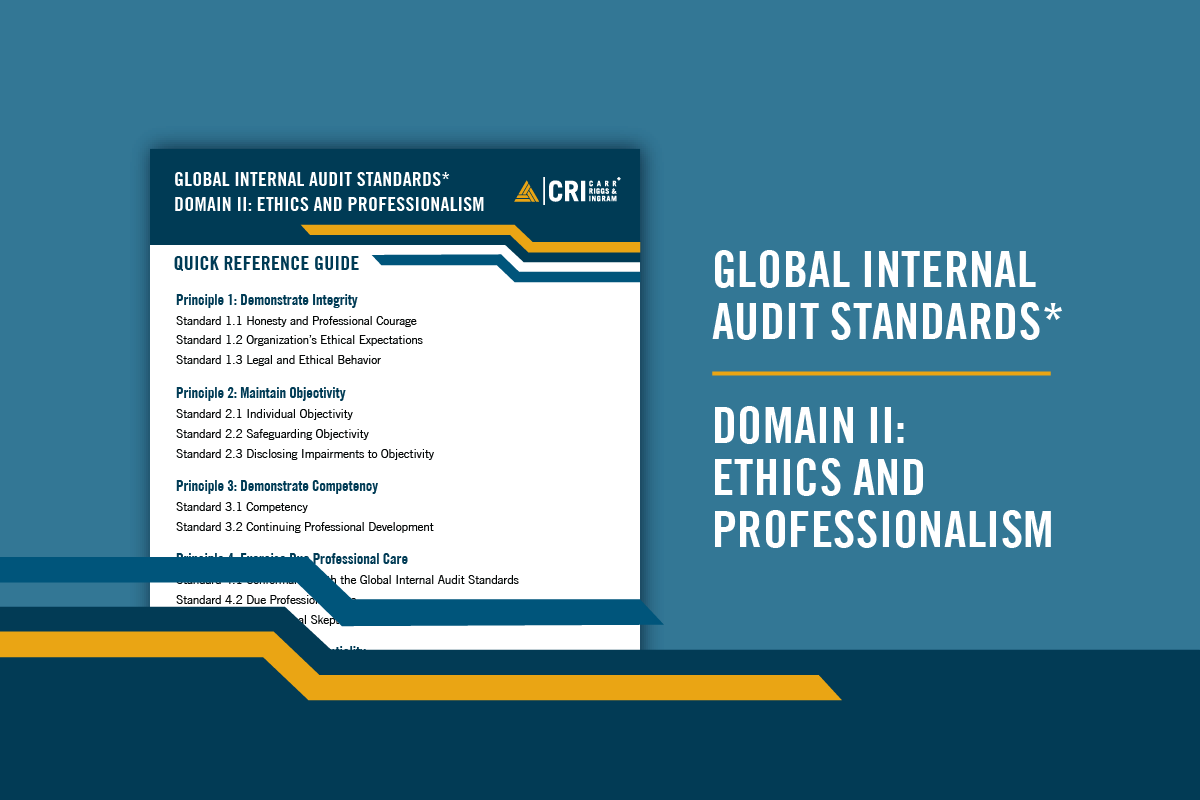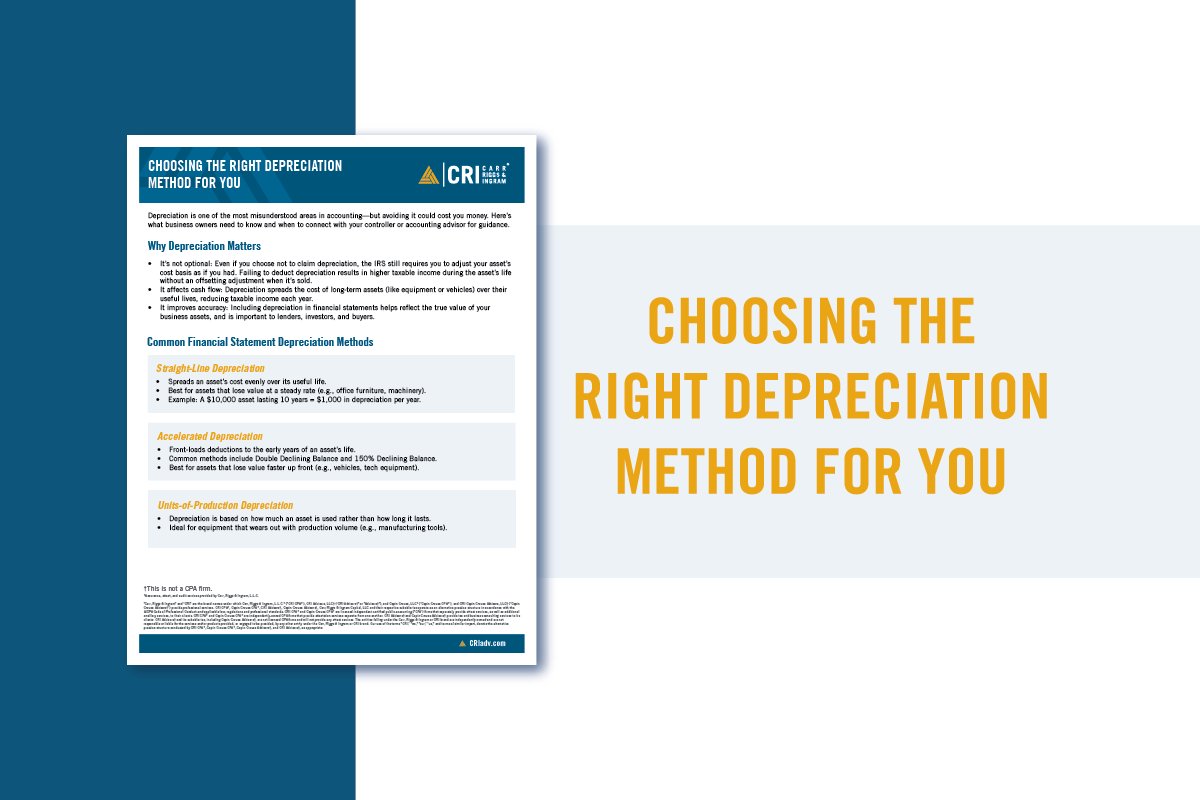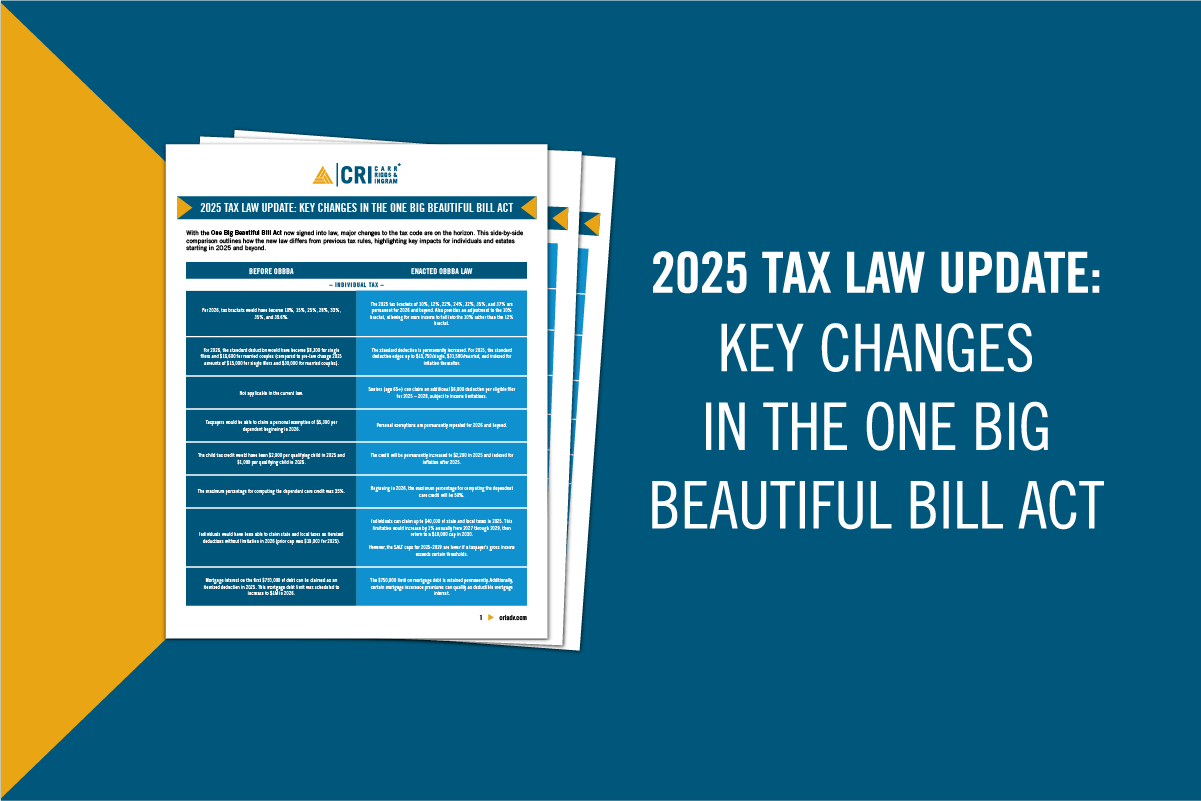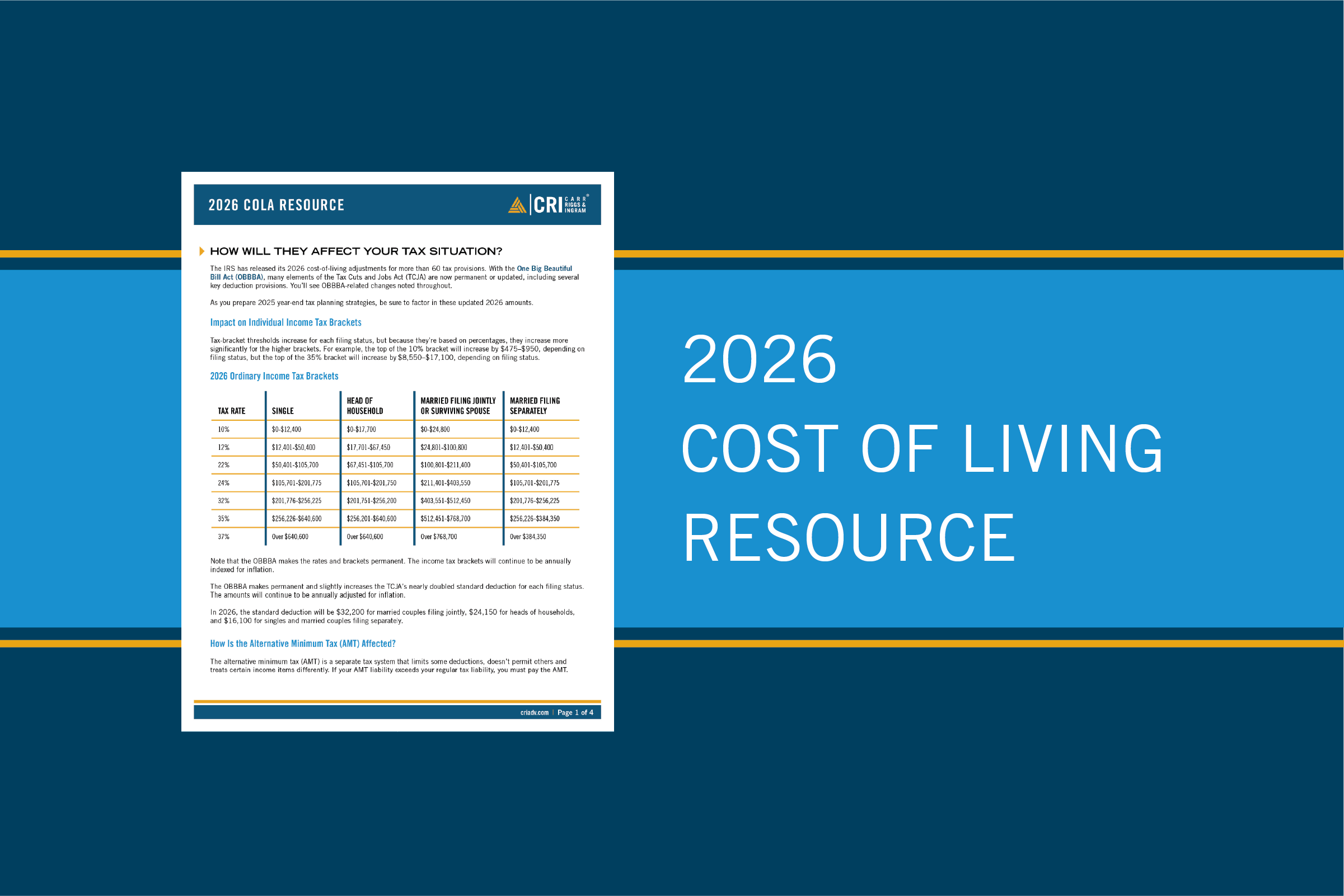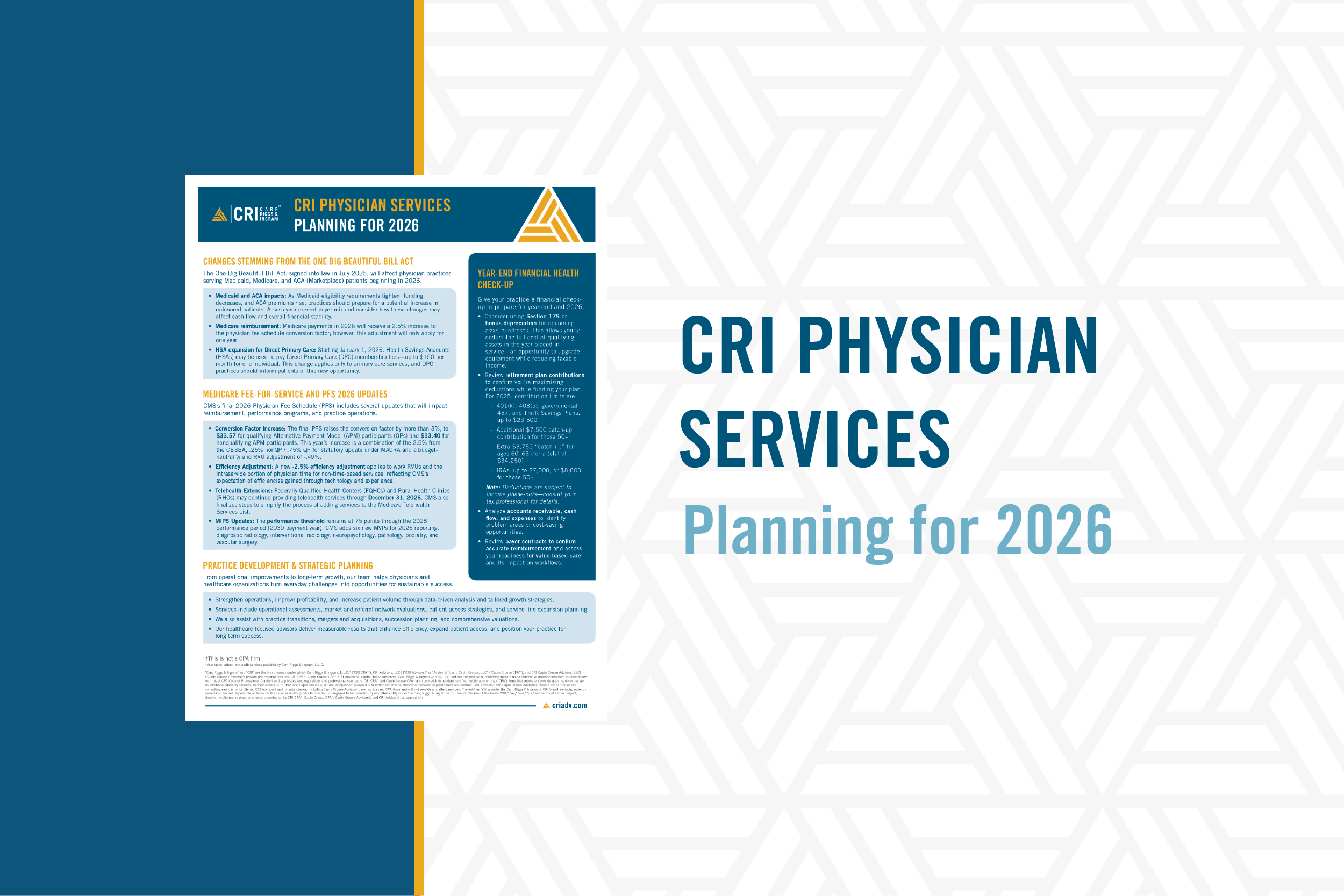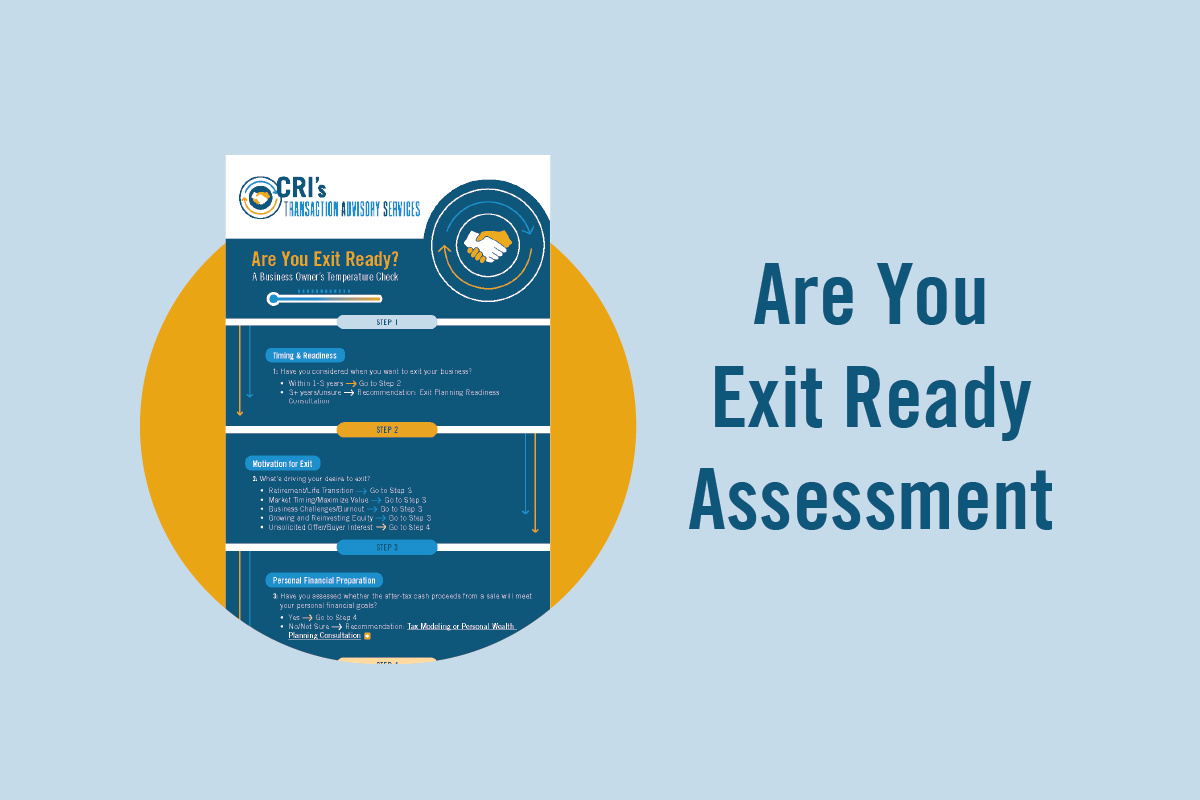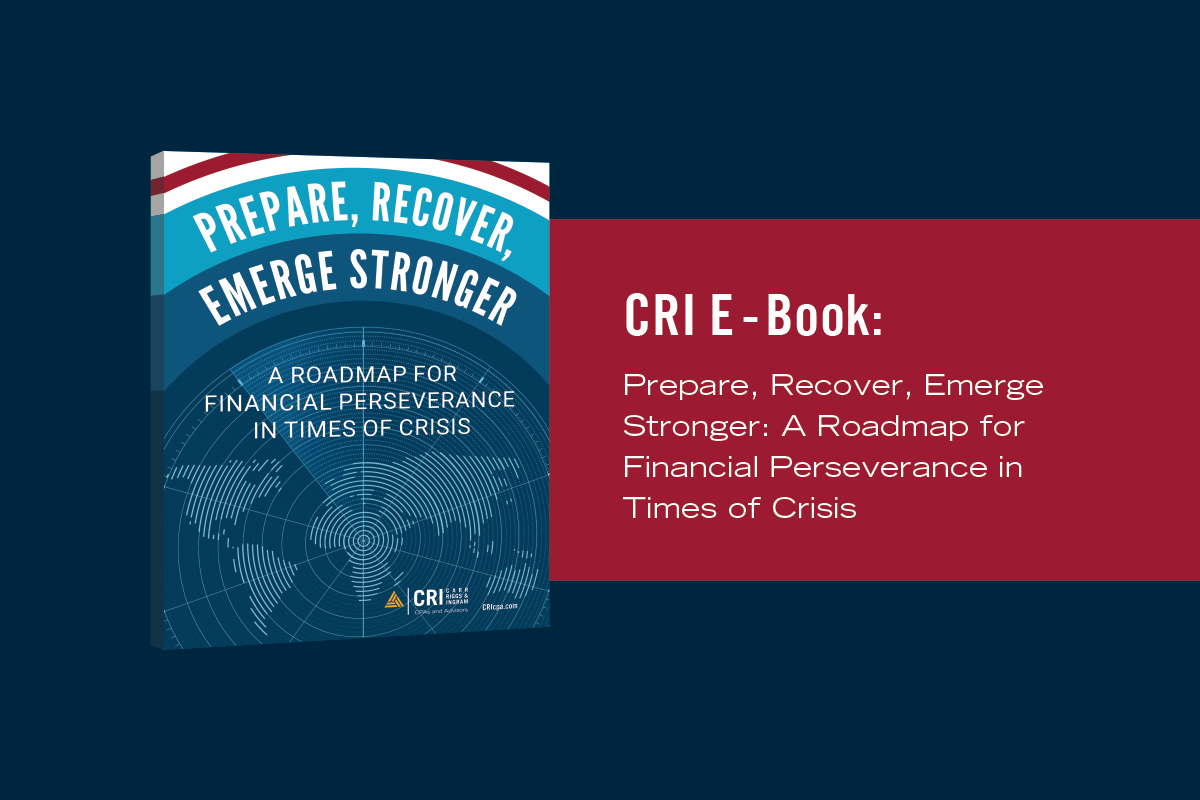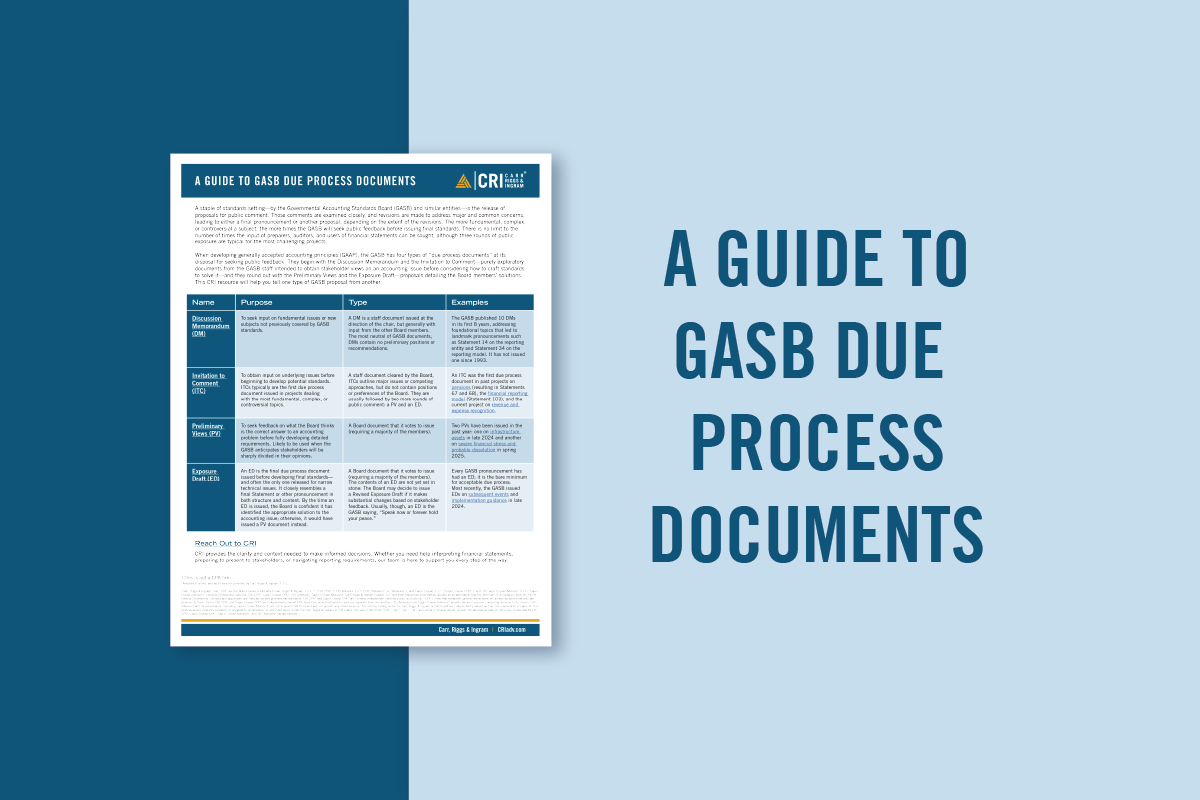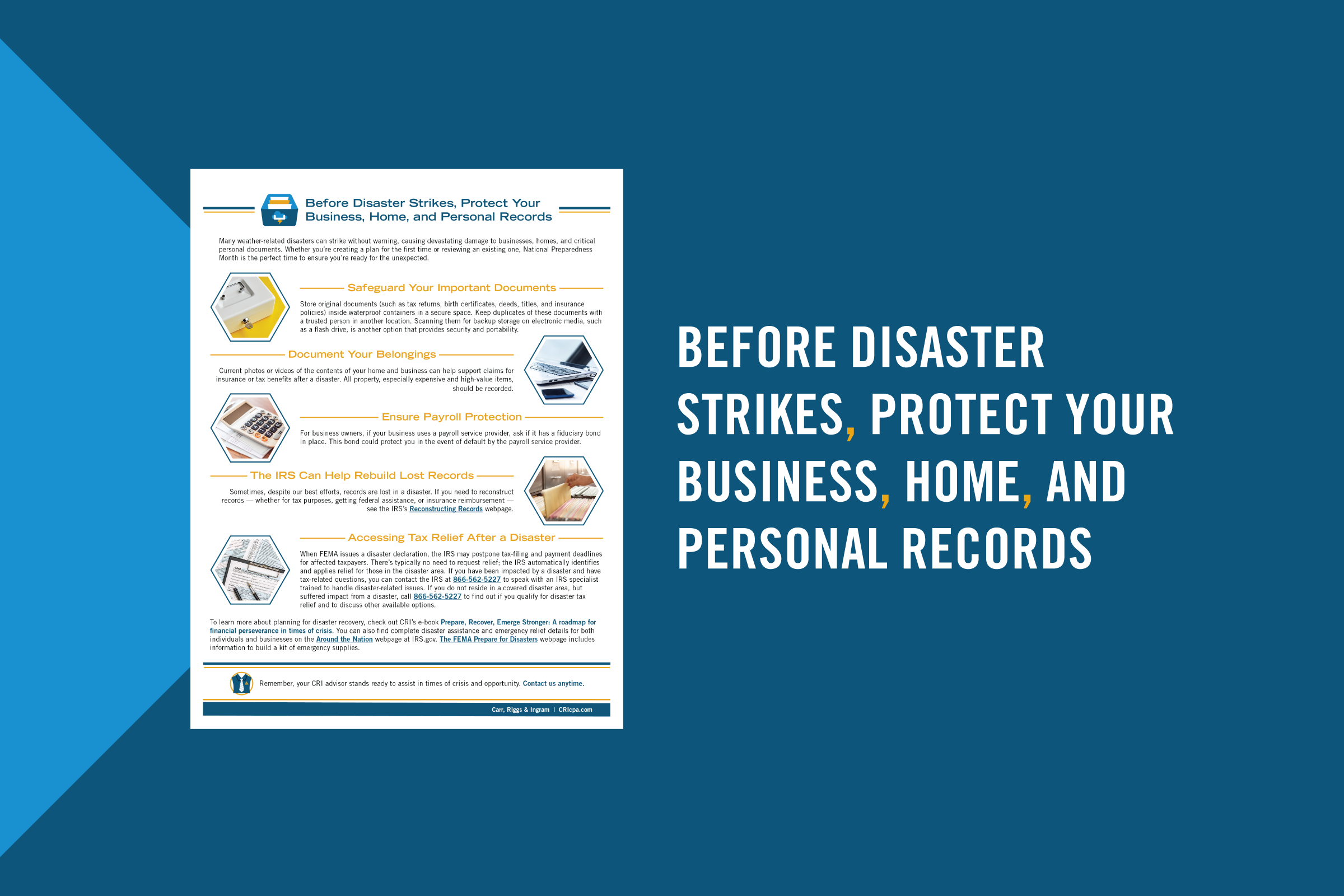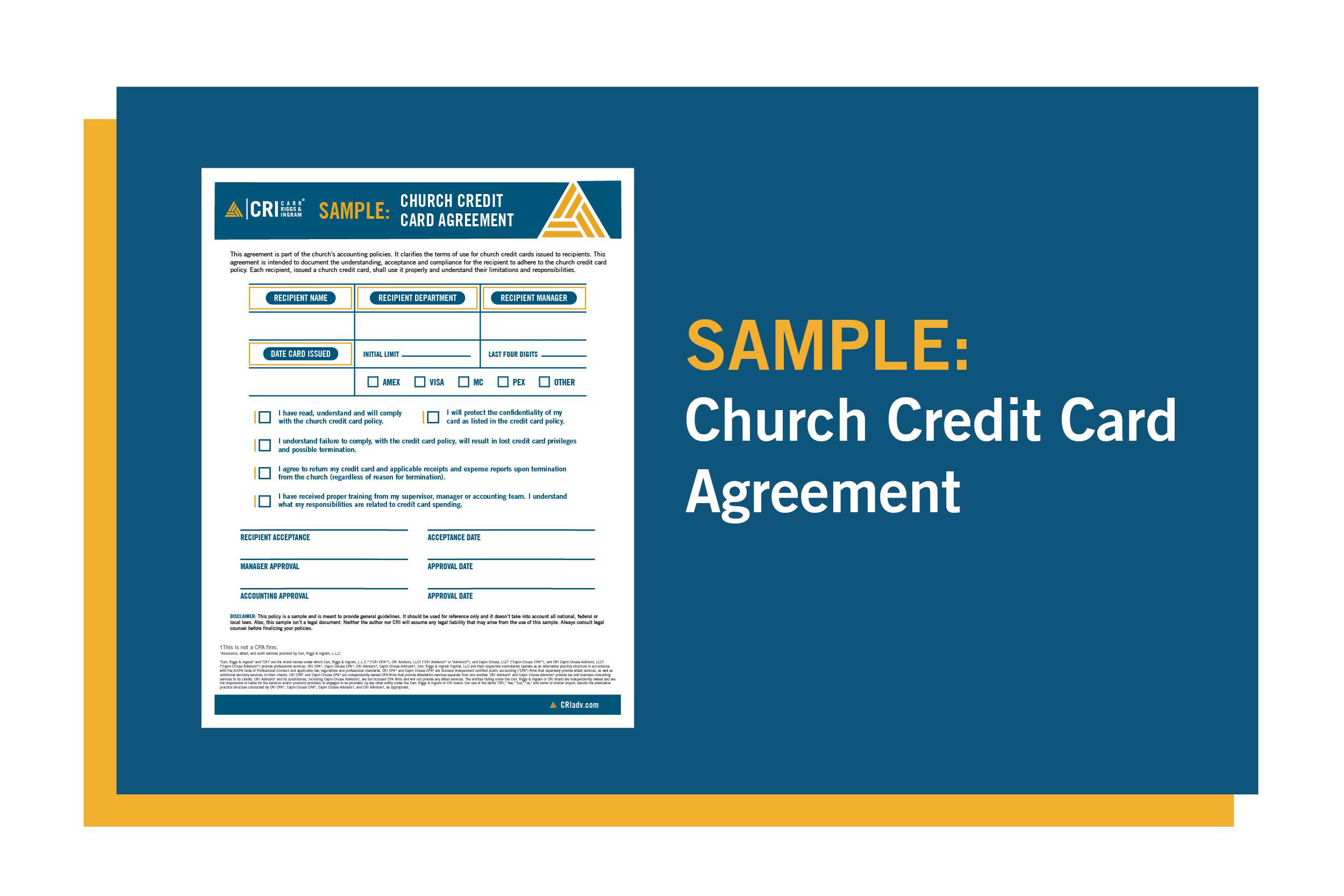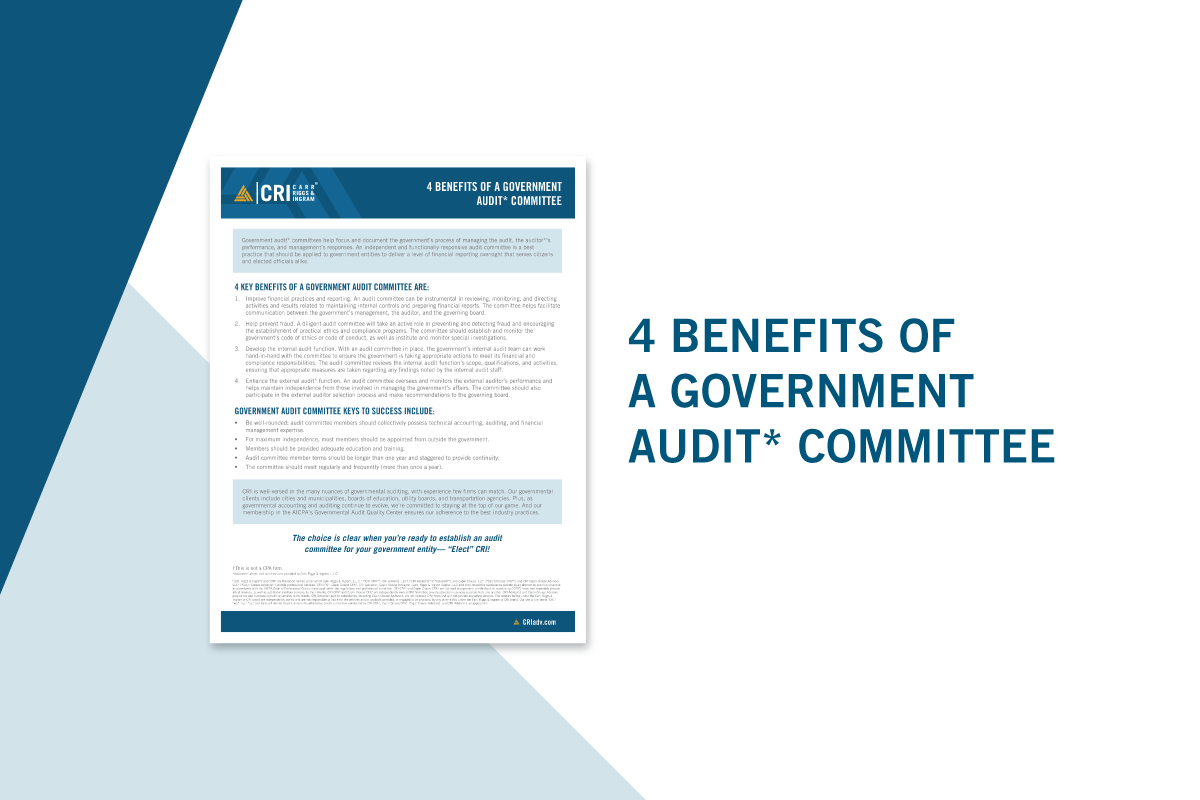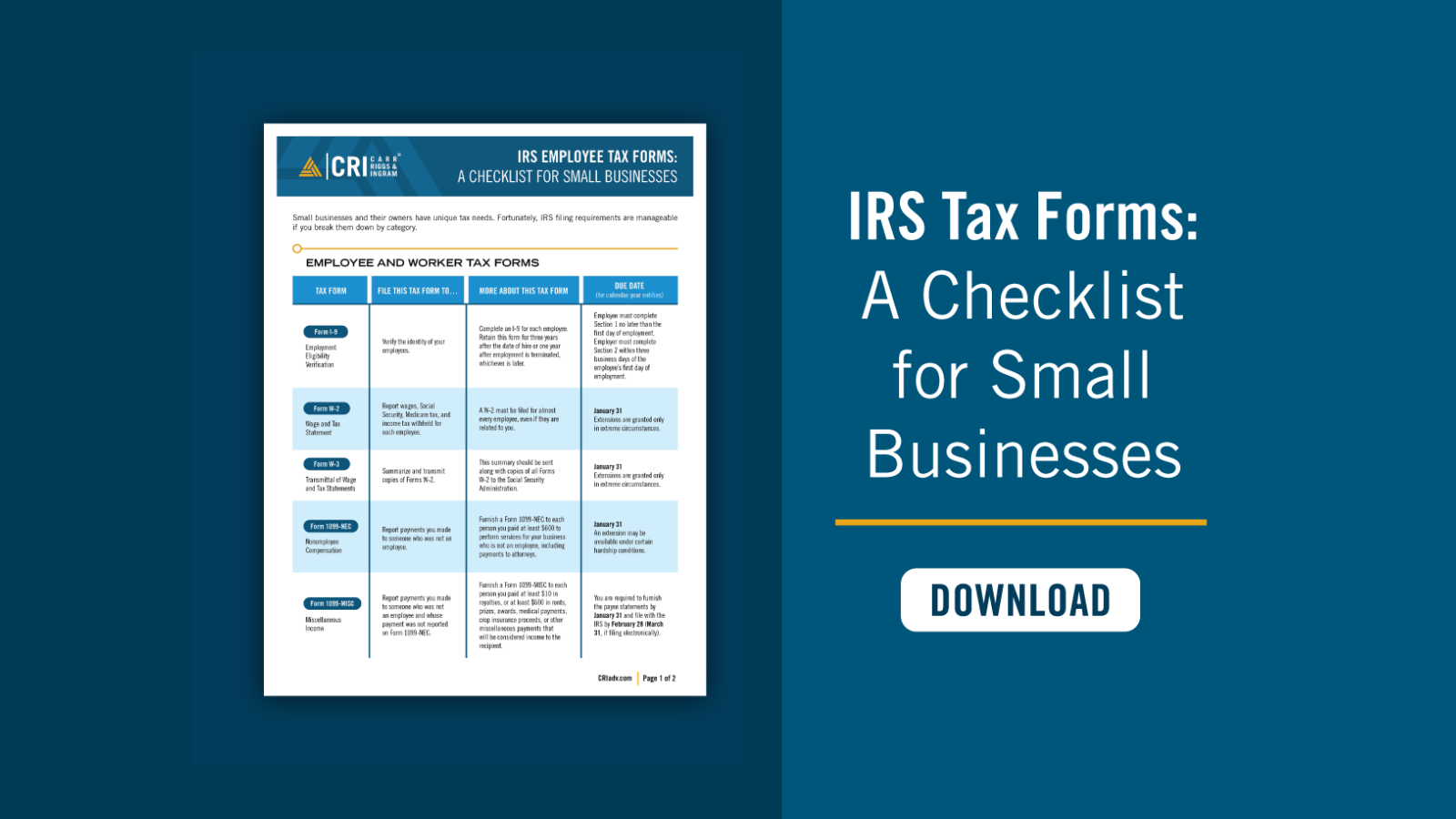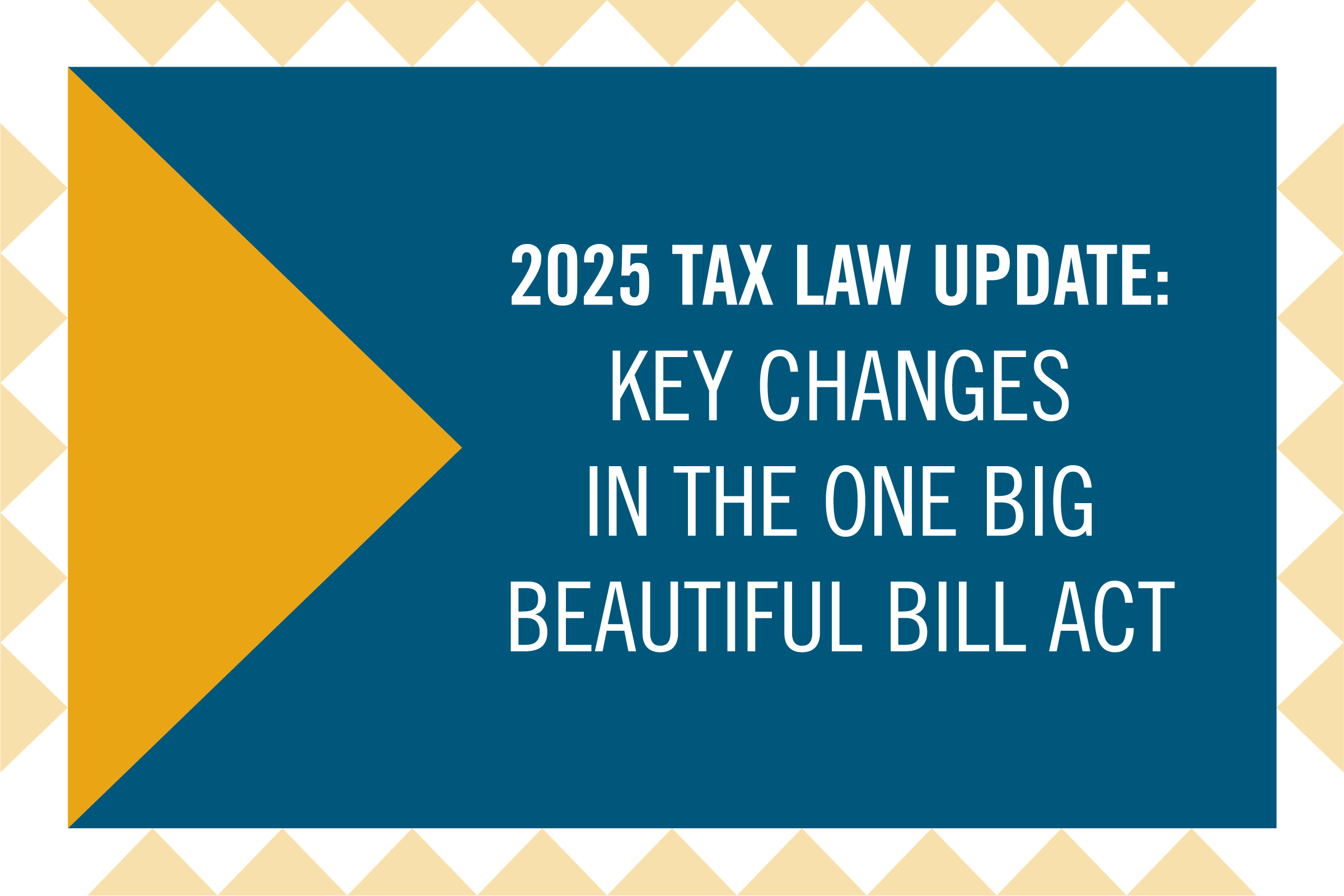Insurance Companies and the IRS: What’s on the Horizon?
- Contributor
- Rebecca Dansereau
Apr 28, 2025
If you find your company in the midst of an IRS examination, do you know what you should expect throughout the process? Before setting expectations, it is essential to recognize how insurance accounting and taxation are specialized knowledge sets. Over the past decade, progressive budget cuts to the IRS agency have hindered the agency's ability to provide sufficient training to its agents as a whole. As such, the agency has been unable to provide more extensive training for the specialized field of insurance. In light of this, it is crucial to proceed patiently with the agents you are working with, knowing that you may have more current knowledge of insurance accounting and taxation matters.
However, no company is immune from an IRS examination. In 2017, the Large Business and International (LB&I) Division of the IRS introduced their first compliance campaigns, providing taxpayers and practitioners a window into the agency's areas of focus. The IRS initially identified 13 compliance areas. Today it has 48 active campaigns, several of which specifically target insurance companies.
Captive Insurance
Since the launch of the compliance campaigns, the IRS has maintained a significant interest in "micro-captives," or captives making a small insurance company election under IRC Section 831(b). These micro-captives must meet certain restrictions on premiums and ownership criteria in order to avoid taxation on their insurance activity or underwriting income. While micro-captives were missing from the IRS's latest "Dirty Dozen" list (IR-2025-26), the LB&I's current active campaigns indicate captive insurance is still an area of interest. The IRS has enumerated a captive services provider campaign as well as a micro-captive insurance campaign. Specifically, the campaigns will focus on IRC Section 482, the allocation of income and deductions among taxpayers, and transfer pricing guidelines as they apply to foreign captive subsidiaries and transactions described in Transaction of Interest Notice 2016-66.
IRC Section 956 Transition Tax
Additionally, you may find yourself the target of an examination focused on IRC Section 965, the transition tax. The tax was implemented as part of the Tax Cuts and Jobs Act (TCJA) on December 22, 2017, and requires U.S. shareholders to pay a transition tax on the untaxed foreign earnings of certain specified foreign corporations if those earnings had been repatriated to the U.S. With foreign companies being a popular option in many insurance arenas, this tax has likely impacted your U.S. operations. As such, you may find that the IRS scrutinizes your company's transaction tax calculations to make sure they comply with IRC Section 965.
Life insurance reserves
Also, as a result of the TCJA, IRC Section 13517 introduced changes to the calculation of life insurance reserves computations. The purpose of the change represents an attempt to harmonize—a word not often used in taxation—the evolution of reserves calculated on the statutory reporting basis reserves and the tax-basis life reserves. The IRS states that the campaign's goal is to understand how taxpayers implemented TCJA Section 13517, ensure compliance with the tax-basis calculation requirements, and identify compliant and non-compliant technical issues.
Other campaigns
Interestingly enough, while the TCJA also changed how accident and health insurance reserves were computed, the IRS did not enumerate a specific campaign focused on the taxable treatment of accident and health reserves. There is, however, a broad focus on TCJA changes. Former LB&I campaigns also considered the impact of the Coronavirus Aid, Relief, and Economic Security (CARES) Act. Both of these legislations changed net operating loss (NOL) rules, so applying the NOL rules was under scrutiny, especially for consolidated net operating loss carryovers. While net operating losses are still a complex issue, especially for mixed group consolidations, the LB&I has retired its compliance campaign on loss limitations for consolidated net operating losses.
Seek Guidance When Needed
If you find your company a subject of these campaigns or any other IRS examination, be sure to reach out to a CRI tax advisor for further guidance on how to approach the process. It's important to have a knowledgeable team working alongside your organization to provide you with tax expertise in order to navigate the ever-evolving landscape.



